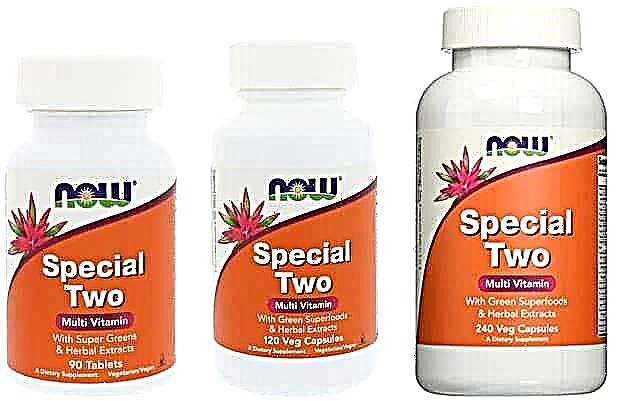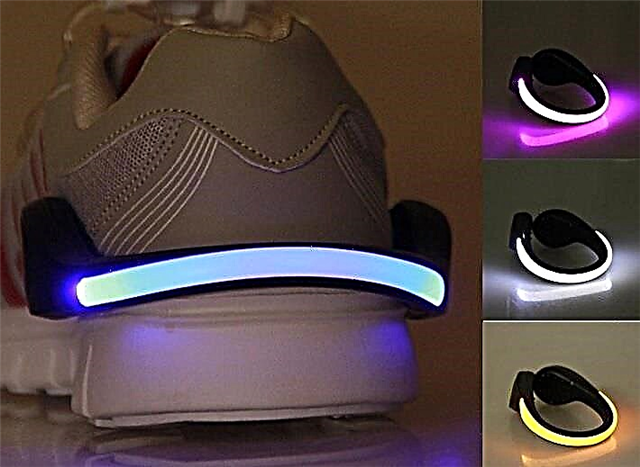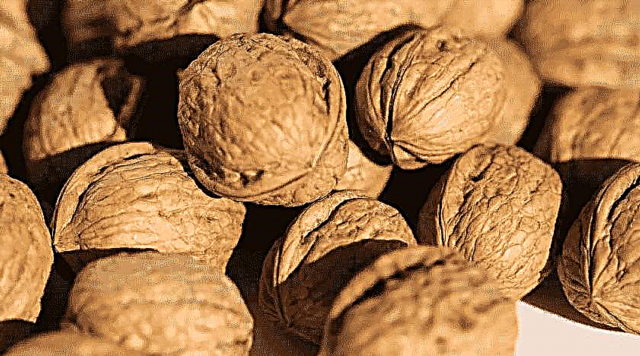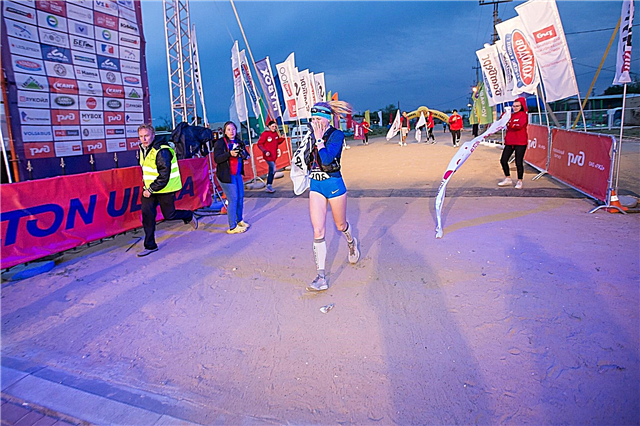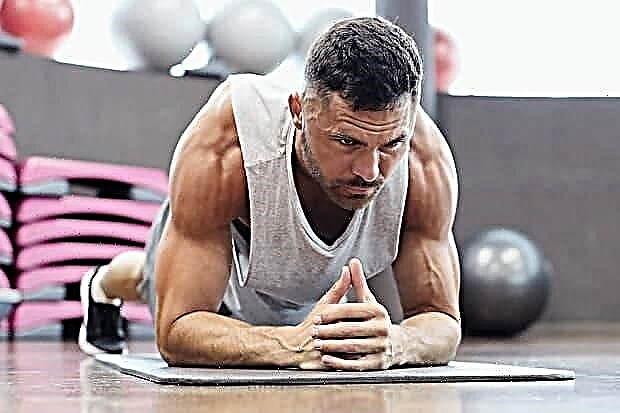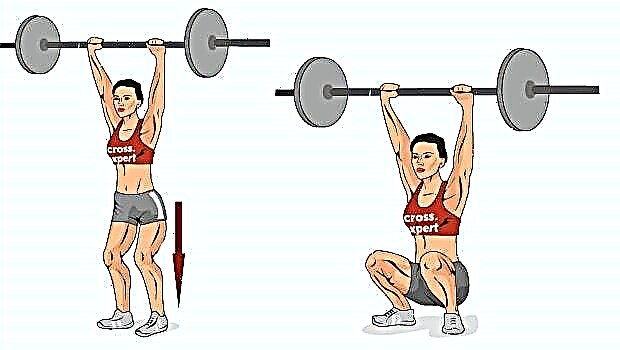If you've already wondered if it's okay to drink coffee before a workout, you probably realized that the topic is very controversial. Some say about the dangers of the drink and that it is not compatible with sports. Others insist that pre-workout coffee in the gym isn't just okay, it even needs to be consumed. We suggest not to get lost in conjectures, but to deal with this topic, relying solely on facts.
In this article, we will tell you how the popular flavored drink affects the body and the effectiveness of the exercises and whether it can really be used for weight loss. As a result of reading the material, you will be able to draw your own conclusions about the benefits and dangers of coffee.
Coffee is not as bad as they say ...
Even one sip of this aromatic drink affects our body. The components contained in coffee (there are more than 100 of them) quickly penetrate into the bloodstream and are reflected in many processes. So what do science and medicine say about the effects of this drink on the body?
- It is a well-known fact that as a result of drinking coffee, blood pressure rises slightly. If we are talking about one cup, then the pulse slows down a little, but after the second, the heart rate accelerates.
- Coffee stimulates the production of hydrochloric acid in the stomach, so drinking a cup after a meal is not so bad, but we do not recommend doing this on an empty stomach - it is fraught with irritation of the mucous membrane.
- There is also some diuretic effect, which many consider to be too weak and unworthy of attention, although this depends solely on the individual characteristics of the organism.
- Caffeine invigorates and promotes the release of adrenaline, which, in turn, helps to "open" the lungs, making breathing easier, and causes the liver to release glycogen into the blood, providing the body with additional energy. Coffee has been proven to stimulate the production of dopamine, the "happiness hormone". With an excess, the opposite effect is observed: sleep disturbance, anxiety, irritability.
Many people equate coffee to a drug and there is some truth in this. A person not only psychologically gets used to starting a working day with an invigorating drink or drinking coffee before training - his body also becomes physically dependent. Dropping caffeine after a long and continuous period of caffeine use can lead to headaches, fatigue, depressed mood and inability to concentrate.
The benefits and harms of coffee before exercise
So, the general aspects of what you should know about the effect of coffee on the body, we have summarized above. Now let's go directly to the question, can athletes drink coffee before training? The answer to this question is not unambiguous - a flavored drink can bring both benefits and harm to an athlete. It all depends on the individual characteristics of the body and the amount of coffee drunk. Let's start with the positives and the benefits an athlete can derive from an invigorating drink.

Useful properties of coffee
The list of useful properties that the drink loved by many is endowed with is quite impressive. Below are the main strengths that athletes can use to make small improvements in their athletic performance.
Increased endurance
Caffeine is the most popular of the mild stimulants, and for good reason. Training experts in the United States have proven that strength performance increases by about 10% when given a caffeine boost before training.
Even at the highest athletic level, coffee is used by athletes to enhance performance. Therefore, the anti-doping committee is considering the inclusion of caffeine-containing drugs in the list of prohibited. Manufacturers of sports drinks and snacks do not even hide that a third of all products contain caffeine. And the British firm TrueStart Coffee recently launched a special deluxe freeze-dried coffee specifically for athletes looking to optimize performance. By the way, this brand was founded by spouses of triathletes.
Relief of muscle pain
Pre-workout coffee may not completely relieve the subsequent muscle pain, also known as DOMS, but it will significantly reduce soreness.
In one study, subjects were given caffeine at 5 mg / kg body weight (equivalent to about 2.5 cups of espresso) and then sent to a grueling workout. As a result, painful sensations 2-3 days after training were about half less.
Improved responsiveness and alertness
Australian scientists from a medical university concluded that caffeine increases brain activity primarily in the area responsible for attention and short-term memory.
Primarily, the aphrodisiac effect of coffee is caused by the ability of caffeine to masquerade as adenosine, known as the fatigue hormone. Adenosine builds up in the body during wakefulness and when it reaches a certain level, the brain decides it's time to sleep. Caffeine binds to certain receptors instead of adenosine and tricks the gray matter into keeping it working in an agitated state.
Acceleration of metabolism
Coffee speeds up metabolism by 3-4% in a calm state and up to 15% during training. At the same time, caffeine enhances the breakdown of fat for energy. It is not recommended to drink coffee with cream or milk before training so that fats are taken from personal stores. While fat is being broken down, glucose and glycogen are not used, this keeps the required plasma sugar levels, which ensures a feeling of fullness.
Additional source of nutrients
Coffee beans contain about 35% of stable solids, which remain unchanged during long-term storage and pass into the water after brewing.
The main components of coffee:
- Caffeine - 0.7-3.2%;
- Protein - 9-19%;
- Fats - 9-18%;
- Carbohydrates - 4.2-11.5;
- Organic acids up to 10.5%;
- Trace elements (potassium, magnesium, calcium, sodium, manganese);
- Vitamins (PP, B1, B2).
All of the above substances are essential for the body and will not become superfluous during exercise. For example, potassium and magnesium activate muscle work and participate in the synthesis of protein and ATP - a universal source of energy for all biochemical processes. Potassium supplies the electrical potential of nerve cells by regulating muscle contraction. Vitamin PP (niacin) is involved in the metabolism of fats and proteins, tissue respiration, glycogenolysis.

The negative effect of coffee on the body
The negative effect on the body is usually caused by individual intolerance, drink abuse or health problems for which it is contraindicated. There are also several negative points, depending on the properties of the drink itself. So, who shouldn't drink coffee before exercise and why?
Calcium washout
After drinking a coffee drink, the acid-base balance shifts towards acids, therefore, calcium stores are released, which are necessary to neutralize them. One cup of coffee is responsible for the loss of approximately 40 milligrams of calcium. In defense of coffee, I would like to note that the main culprits for calcium excretion are carbonated sweet drinks, pickled, spicy and sour foods. Honorable second and third places were shared by semolina porridge and meat products. Therefore, giving up coffee does not mean that the calcium content in the body is not threatened.
Reverse effect and addiction
The effect of coffee is often the opposite. For the first time 20-30 minutes of training, a surge of energy is felt, but later, the body, exhausted from a strong load, turns out to be even more tired. In addition, like any stimulant, caffeine is addictive. To get the desired effect, you have to increase the "dosage", which entails a number of negative consequences. For people who often consume this drink, it does not matter how much coffee to drink before training, since the desired result will not be, since the body is used to it.
Effect on the heart
Not the most encouraging studies have recently been conducted by specialists from the University of Zurich and the Center for Integral Human Physiology. They found that two cups of coffee before exercise limited the ability of the heart muscle to increase blood flow, which reduces the supply of oxygen and nutrients to tissues and organs. The participants were measured the circulation of blood flow in the body before and after exercise, and then divided into two groups. In the first group, the subjects drank two caffeine-containing tablets (about 2 cups of strong coffee), in the second they did not drink anything. In a calm state, all subjects had blood flow within normal limits, after the end of the workout, those who took caffeine noted a 25% decrease in blood flow through the heart.
This study is primarily relevant for people suffering from reduced blood flow. Whether it is necessary to drink coffee before training is also worth considering for those who live and, accordingly, train in mountainous areas.
Caffeine is a diuretic
Coffee is not the strongest, but still a diuretic, which means it is able to "expel" water from the body. In addition to this, a significant amount of fluid is lost with increased physical activity. Together, this can lead to varying degrees of dehydration, which puts stress on the kidneys. Therefore, if you decide to drink coffee before training, it is worth stocking up on water.
If this does not happen constantly, there is nothing to be afraid of, but when even minimal dehydration becomes regular, the water-salt balance is disturbed, and the risk of developing renal failure increases.

Coffee and caffeine
Caffeine is an alkaloid, a plant compound with a pronounced physiological activity. Contained in coffee seeds, tea leaves, cocoa fruits, cola and some other plants. The substance is synthesized by them to protect against insects, as well as to encourage pollinators.
In everyday life, people often think of coffee and caffeine as a whole, but this approach is not entirely correct. Let's pay attention to the plate, which clearly shows the alkaloid content in various foods and drinks. Perhaps a cup of coffee before a workout is not the only source of invigorating substance.
Table. Caffeine Content in Certain Foods and Beverages
| Drink or product | Average serving (ml / g) | Caffeine content (mg) |
| Arabica coffee | 170 | 40-60 |
| Excels coffee | 170 | 40-60 |
| Robusta coffee | 170 | 140-200 |
| Espresso | 30 | 30-50 |
| Instant coffee | 100 | 30-50 |
| Decaf (ground or instant) | 170-200 | 8-16 |
| Cocoa | 170-200 | 10-15 |
| Coca-Cola, Pepsi, Mountain Dew | 100 | 10-20 |
| Green tea | 170-200 | 12-30 |
| Black tea | 170-200 | 40-60 |
| Bottle tea (Lipton / Nestea) | 100 | 5-8 |
| Energy drinks | 100 | 30-50 |
| Other soft drinks | 100 | 10-15 |
| Black chocolate | 100 | 60-80 |
Coffee before workout for weight loss
Coffee really helps you lose weight when combined with exercise, this is not a myth. As already mentioned, the drink increases endurance, reduces appetite, helps to give all the best in class and speeds up metabolism. We are talking about natural coffee before your morning workout without sugar and even more high-calorie cream. If the body receives a portion of glucose, it will not need to burn fat in order to get energy and the deposits will be intact.
Harvard scientists decided to find out which coffee before exercise is more suitable for burning fat: black or green. As a result, the “green” group lost an average of 5.5 kg over 3 months, and the “black” ones lost up to 2 kg.
The slimming effect of coffee can be enhanced if the product is used only as an additional factor, and the main emphasis is on proper nutrition and exercise.

How to replace coffee?
Lovers of coffee taste and aroma can try replacing the classic drink with decaffeinated one. Caffeine is removed from green coffee beans, but this has little effect on the aroma and flavor of the beverage. It is believed that decaf practically does not differ from classic coffee, and therefore is an excellent alternative for fans.
If coffee as a drink is not interesting, but its stimulating effect is needed, then a cup of strong tea can be a substitute for coffee. More radical replacement options include caffeine tablets, energy drinks, and pre-workout blends. There is even a specialty coffee fortified with protein.

With the benefits and harm that a drink can bring, everything is more or less clear. It remains to find the answer to two important questions, which will determine whether the drink will become an assistant or cause a negative reaction in the body.
Recommended dosages
So, the first question is, how much coffee can an athlete drink so that it does not negatively affect him? Here the principle applies: more is not always better. In order for pre-workout coffee to work as a stimulant and have only a positive effect on the body, it must be consumed in reasonable amounts.
Of course, in each individual case, the number of cups drunk is deeply individual, however, there are several basic recommendations:
- If you need a positive effect on training, the average dose of caffeine for athletes should be 150-500 mg (3-5 mg / kg body weight). This is about 1-2 cups of espresso. Less coffee will not have a noticeable effect, and more can have undesirable consequences.
- The maximum daily dose of caffeine for an adult is approximately 1000 mg, and a single dose is 400 mg. Exceeding the maximum permissible doses can be fatal. Symptoms of intoxication are as follows: insomnia, anxiety, headaches, nausea, rapid breathing, and irregular heartbeat. In more severe cases, muscle twitching, incoherent speech and thoughts. These reactions often disappear as the substance is removed from the body.
- To avoid addiction, it is necessary to take a break for 5-7 days every two weeks. This gap will be enough to clear the receptor cells, which will again be ready to adequately perceive the stimulant and work in the right direction.

When is the best time for an athlete to drink coffee?
The second important question is how much coffee to drink before training? As practice shows, the aromatic stimulant is best consumed 30-40 minutes before the start of classes. Drank just before exercise, it simply does not have time to take effect. The maximum concentration of coffee components in the blood is observed 40-50 minutes after consumption, and the half-life is 5-10 hours. Before training, you should give up high-calorie coffee with sugar.
Despite the many positive aspects, you should not rely on coffee as a magic wand that can improve your figure with one stroke or make you do the impossible. Whether to drink coffee before a workout in the gym - everyone decides for himself, we can definitely say that a cup of a good natural drink an hour before morning exercises will not do any harm.

